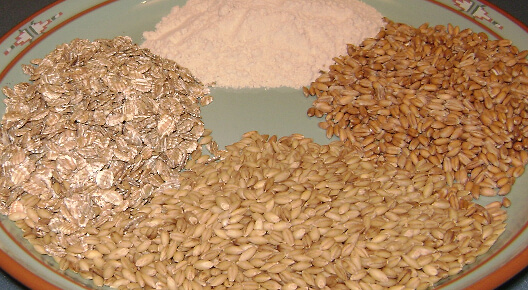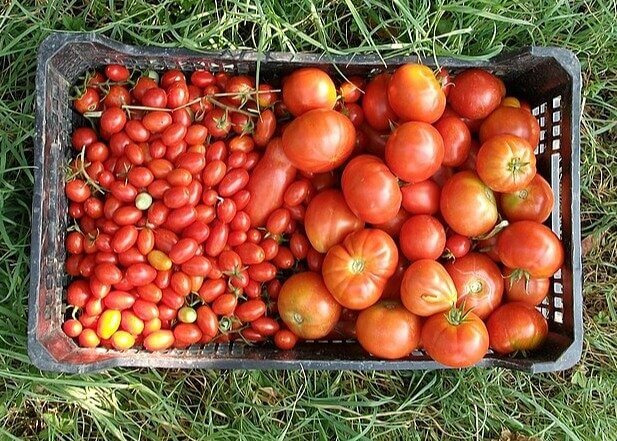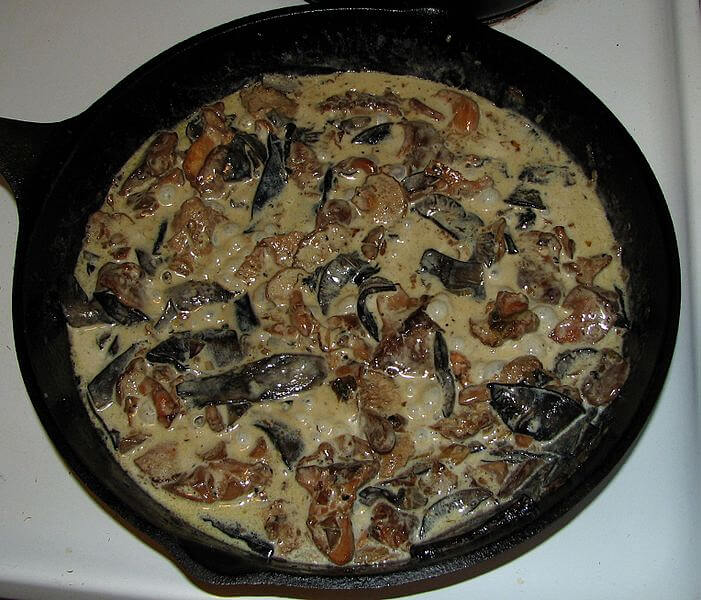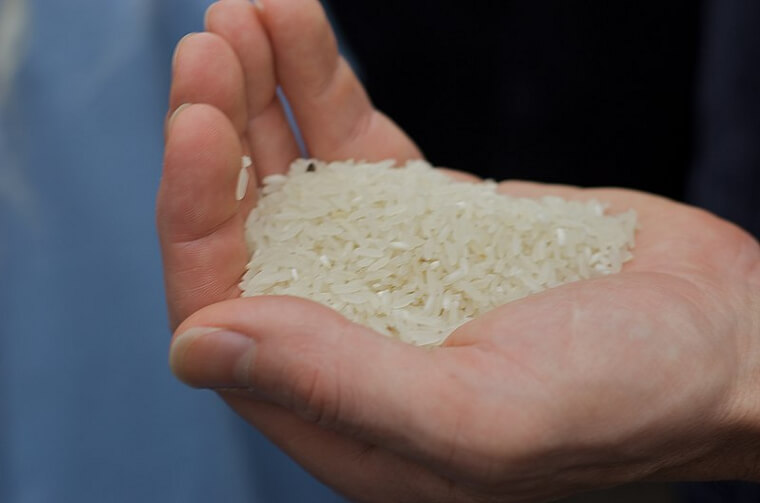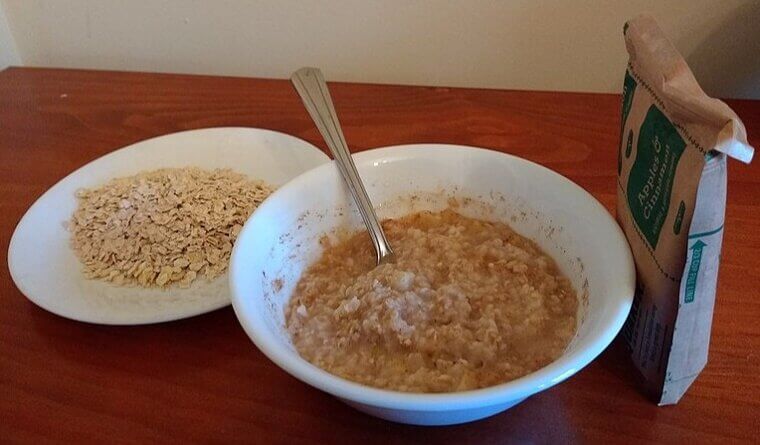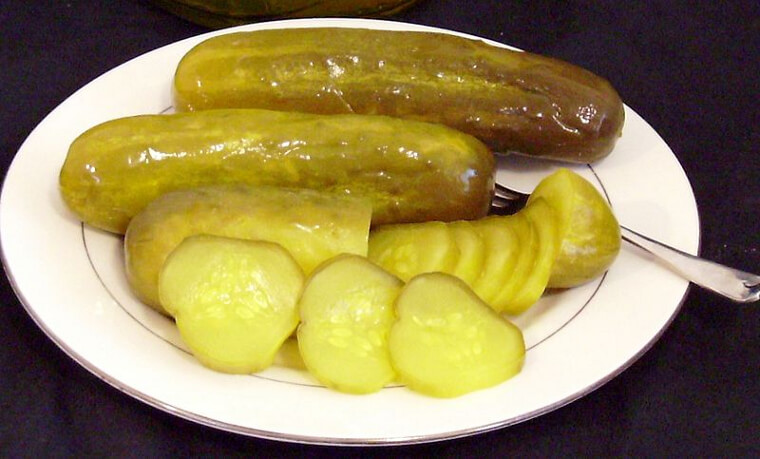Peppers
Peppers, whether sweet or spicy, are part of the nightshade family and may contribute to arthritis pain in some individuals. The solanine found in peppers can cause inflammation in sensitive people, leading to more severe arthritis symptoms. If you notice a correlation between eating peppers and increased joint pain, consider replacing them with anti-inflammatory veggies like carrots or cucumbers, which provide crunch and flavor without the inflammation risk.
Peppers are often added to salads, stir-fries, and salsas but can trigger joint pain in some. Carrots or cucumbers are crunchy alternatives that won't aggravate arthritis.
Fried Foods
Fried foods are a go-to comfort choice, but for those with arthritis, they’re best left on the table. The trans fats often found in fried items like French fries and fried chicken can trigger inflammation, leading to increased joint pain and stiffness. These unhealthy fats not only exacerbate arthritis symptoms but also contribute to other health concerns, like heart disease and obesity. Instead, swap out fried snacks for baked or grilled options, which are less likely to inflame your joints.
Fried foods, like those from fast food chains, are loaded with trans fats. Consider baked sweet potato fries as a tasty alternative to satisfy your cravings without the inflammation.
Processed Meats
Processed meats, such as hot dogs, sausages, and deli meats, are packed with preservatives and additives that may worsen arthritis symptoms. The high levels of sodium and nitrates in these foods can lead to inflammation, increasing joint pain and swelling. Additionally, processed meats are often high in saturated fats, which can contribute to weight gain and put extra pressure on your joints. Opt for lean proteins like chicken or turkey breast instead, which are less inflammatory.
Processed meats are often hidden in popular dishes like pizzas and sandwiches. Try grilled chicken or turkey instead for a protein boost that’s easier on your joints.
Sugar
Indulging in sugary treats might be tempting, but excessive sugar can be a real pain—literally. High sugar intake can lead to weight gain, which adds extra stress to your joints, worsening arthritis symptoms. Moreover, sugar can spike inflammation in the body, leading to increased pain and stiffness. Common sources of added sugar include soft drinks, candies, and desserts. To satisfy your sweet tooth, try fresh fruits like berries, which are naturally sweet and anti-inflammatory.
Sugar is lurking in many processed foods, from sodas to cereals. Opt for naturally sweet fruits like strawberries or blueberries to curb cravings without inflaming your joints.
Refined Carbohydrates Like White Bread
Refined carbohydrates, found in white bread, pastries, and many processed snacks, can be a recipe for disaster for those with arthritis. These carbs can spike blood sugar levels, leading to increased inflammation and joint pain. Additionally, refined carbs are stripped of their nutrients, offering little in the way of health benefits while contributing to weight gain. Switch to whole grains like brown rice or whole wheat bread, which provide fiber and nutrients without the inflammation.
Refined carbs are everywhere, from white bread to donuts. Whole grains like quinoa or oats are healthier options that won’t aggravate your arthritis.
Red Meat
Red meat, such as beef and lamb, is high in saturated fats, which can promote inflammation and worsen arthritis symptoms. Regular consumption of red meat can lead to increased levels of inflammatory markers in the body, exacerbating joint pain and stiffness. Additionally, red meat is calorie-dense, which can contribute to weight gain and put additional stress on your joints. Consider swapping red meat for fish, like salmon, which is rich in omega-3 fatty acids and helps reduce inflammation.
Red meat is a common ingredient in many dishes like burgers and steaks. Choose fatty fish like salmon for a protein-packed meal that helps combat inflammation.
High-Fat Dairy Products
High-fat dairy products, such as full-fat milk, cheese, and butter, can contribute to inflammation in some individuals with arthritis. These foods are rich in saturated fats, which can increase inflammatory responses in the body and lead to more severe arthritis symptoms. Additionally, full-fat dairy can contribute to weight gain, adding extra strain on the joints. Opt for low-fat or non-dairy alternatives like almond milk or Greek yogurt, which are less likely to trigger inflammation.
High-fat dairy products are found in many dishes, from creamy sauces to rich desserts. Non-dairy alternatives, like almond milk or low-fat yogurt, offer similar flavors without the joint pain.
Alcohol
While an occasional drink might seem harmless, alcohol can be problematic for those with arthritis. Excessive alcohol consumption can increase inflammation and interfere with the body's ability to absorb essential nutrients, worsening joint pain and stiffness. Alcohol is also calorie-dense, which can contribute to weight gain, putting more pressure on your joints. If you enjoy social drinks, opt for antioxidant-rich options like red wine in moderation, which may have some anti-inflammatory benefits.
Alcohol is commonly found in social settings and can sneak into sauces and desserts. Moderation is key—if you drink, red wine in small amounts could be a better choice.
Salt
Too much salt can lead to water retention, causing the body to swell, including the joints. This added pressure on the joints can worsen arthritis symptoms, making them more painful and inflamed. Additionally, high salt intake is linked to high blood pressure and other health issues. Salt is often hidden in processed foods like canned soups, sauces, and snacks. To reduce your salt intake, try using herbs and spices to flavor your food instead of reaching for the salt shaker.
Salt is everywhere, from chips to canned foods. Use herbs and spices like basil or turmeric to season your meals without the added sodium that can inflame your joints.
Omega-6 Fatty Acids
Omega-6 fatty acids are essential fats found in oils like corn oil, sunflower oil, and mayonnaise. However, too much omega-6 can lead to an imbalance that promotes inflammation, making arthritis symptoms worse. These oils are commonly used in processed foods, so it’s easy to overconsume them without realizing it. To restore balance and reduce inflammation, replace omega-6-rich oils with those high in omega-3s, like olive oil or flaxseed oil, which have anti-inflammatory properties.
Omega-6 fatty acids are hidden in many processed foods and salad dressings. Swap to olive oil or flaxseed oil to keep your joints happy and inflammation at bay.
Gluten
For those sensitive to gluten, consuming it can lead to increased inflammation and joint pain, exacerbating arthritis symptoms. Gluten, a protein found in wheat, barley, and rye, is commonly present in bread, pasta, and many processed foods. If you suspect gluten may be affecting your arthritis, consider trying a gluten-free diet to see if your symptoms improve. Fortunately, there are plenty of gluten-free grains like quinoa and rice that can be substituted without sacrificing flavor or texture.
Gluten is found in many everyday foods like bread and pasta. Quinoa and rice are great gluten-free alternatives that can help you avoid inflammation.
Tomatoes
Tomatoes are a popular ingredient in many dishes, but they belong to the nightshade family, which some people with arthritis find problematic. These vegetables contain solanine, a compound that may contribute to inflammation and joint pain in sensitive individuals. Although not everyone with arthritis will react to tomatoes, it might be worth limiting them if you notice a correlation with increased symptoms. Instead, try using anti-inflammatory vegetables like spinach or broccoli in your meals.
Tomatoes are common in sauces and salads but may trigger inflammation in some people. Swap them for spinach or broccoli for a joint-friendly dish.
Eggplant
Eggplants, another member of the nightshade family, contain solanine, which may aggravate arthritis symptoms in some individuals. While eggplants are nutritious and versatile, they can lead to increased joint pain and stiffness in those who are sensitive to nightshades. If you suspect eggplants are contributing to your arthritis flare-ups, consider avoiding them and incorporating more anti-inflammatory vegetables like zucchini or bell peppers into your diet.
Eggplants are frequently used in dishes like ratatouille but might worsen arthritis for some. Zucchini or bell peppers can be delicious alternatives that won't inflame your joints.
Potatoes
Potatoes, particularly white potatoes, are another nightshade vegetable that might trigger inflammation in certain people with arthritis. The solanine content in potatoes can lead to increased joint pain and discomfort. But not to worry - there's an easy alternative to potatoes. If potatoes seem to worsen your symptoms, try swapping them out for sweet potatoes, which are not only lower in solanine but also rich in anti-inflammatory nutrients like beta-carotene.
Potatoes are a staple in many diets, from fries to mashed potatoes. Sweet potatoes offer a similar comfort food experience without the potential for increased inflammation.
Sugary Sodas
Sugary sodas are loaded with high levels of sugar and artificial ingredients that can exacerbate arthritis symptoms. The sugar content in sodas can lead to weight gain, which puts extra stress on your joints. Additionally, sugar can promote inflammation, leading to increased joint pain and stiffness. To quench your thirst without the sugar overload, opt for water infused with fruits or unsweetened herbal teas, which hydrate without contributing to inflammation.
Sugary sodas are a common beverage choice but can worsen arthritis symptoms. Try fruit-infused water or herbal tea for a refreshing, joint-friendly drink.
Artificial Sweeteners
While artificial sweeteners might seem like a healthier alternative to sugar, they can still pose problems for those with arthritis. Some people may experience increased inflammation and joint pain after consuming artificial sweeteners, as these additives can disrupt the body's natural processes. Additionally, artificial sweeteners are often found in diet sodas, sugar-free snacks, and low-calorie desserts. Consider using natural sweeteners like honey or stevia, which are less likely to trigger inflammation.
Artificial sweeteners are common in diet products but may still cause joint pain. Opt for natural sweeteners like honey or stevia to avoid artificial additives.
Processed Snacks
Processed snacks like chips, crackers, and packaged cookies often contain unhealthy fats, excessive salt, and refined carbs, all of which can worsen arthritis symptoms. These snacks are not only low in nutrients but also high in inflammatory ingredients, leading to increased joint pain and stiffness. Instead of reaching for processed snacks, try snacking on nuts, seeds, or fresh fruits, which are packed with nutrients and can help reduce inflammation.
Processed snacks are quick and convenient but can trigger arthritis symptoms. Nuts or fruits make healthier, anti-inflammatory snack options that are just as satisfying.
Margarine
Margarine, often marketed as a healthier alternative to butter, is actually high in trans fats, which can increase inflammation and exacerbate arthritis symptoms. These unhealthy fats can raise inflammatory markers in the body, leading to more joint pain and stiffness. Margarine is often used in baking and as a spread, but a better option would be olive oil or avocado as spreads, which are rich in healthy fats that can help reduce inflammation.
Margarine is a common ingredient in baked goods but can inflame joints. Olive oil or avocado are healthier spreads that provide beneficial fats without the inflammation.
Ice Cream
Ice cream may be a delicious treat, but it's loaded with sugar and saturated fats, both of which can exacerbate arthritis symptoms. The high sugar content in ice cream can lead to weight gain, putting additional stress on your joints. Moreover, the saturated fats can increase inflammation, worsening joint pain. For a sweet and refreshing alternative, try frozen yogurt or fruit-based sorbets, which are lower in sugar and fats, and kinder to your joints.
Ice cream is a beloved dessert but can lead to joint pain due to its sugar and fat content. Frozen yogurt or sorbet offers a lighter, arthritis-friendly alternative.
Cream-Based Sauces
Cream-based sauces, like Alfredo or creamy salad dressings, are rich in saturated fats, which can trigger inflammation and worsen arthritis symptoms. These sauces are often high in calories and can contribute to weight gain, adding extra pressure to already stressed joints. To enjoy a flavorful dish without the added fats, opt for tomato-based sauces or vinaigrettes, which are lighter and less likely to inflame your joints.
Cream-based sauces are popular in many pasta dishes but can worsen joint pain. Tomato-based sauces or vinaigrettes provide flavor without the inflammation risk.
Canned Soups
Canned soups might seem like a quick and easy meal option, but they often contain high levels of sodium and preservatives that can exacerbate arthritis symptoms. The excessive salt content in canned soups can lead to water retention, increasing joint pain and swelling. Additionally, preservatives can trigger inflammation. For a healthier alternative, try making homemade soups with fresh vegetables and herbs, which are lower in sodium and free from harmful preservatives.
Canned soups are convenient but often high in sodium. Homemade soups with fresh ingredients offer a flavorful, arthritis-friendly alternative that’s low in salt.
Soy Sauce
Soy sauce is a staple in many Asian dishes, but its high sodium content can cause water retention and increase joint pain for those with arthritis. The excessive salt in soy sauce can lead to swelling and discomfort in the joints. If you enjoy the flavor of soy sauce, consider using a low-sodium version or tamari, which offers a similar taste with less salt, helping to keep your joints feeling better.
Soy sauce is often used in stir-fries and marinades but can lead to joint swelling. Low-sodium soy sauce or tamari provides the same flavor with less impact on your joints.
Candy
Candy is a treat that’s hard to resist, but its high sugar content can spell trouble for those with arthritis. Consuming too much sugar can lead to weight gain, which increases the strain on your joints, worsening pain and inflammation. Additionally, sugar can trigger inflammatory responses in the body, making arthritis symptoms more severe. Instead of reaching for candy, try satisfying your sweet tooth with dark chocolate, which is lower in sugar and has anti-inflammatory properties.
Candy is a quick sugar fix but can lead to increased joint pain. Dark chocolate is a healthier alternative that satisfies your cravings without inflaming your joints.
Fast Food
Fast food is convenient but often loaded with unhealthy fats, sugars, and sodium, all of which can worsen arthritis symptoms. The high levels of trans fats and refined carbs in fast food can lead to increased inflammation and joint pain. Additionally, the calorie-dense nature of fast food can contribute to weight gain, putting extra stress on your joints. For a healthier option, opt for grilled chicken sandwiches or salads when you’re on the go.
Fast food is everywhere but can be hard on your joints due to its unhealthy ingredients. Grilled chicken sandwiches or salads are better options that won’t aggravate your arthritis.
Pastries
Pastries, like donuts, croissants, and muffins, are packed with refined carbs and sugars, which can spike inflammation and worsen arthritis symptoms. These treats are not only high in calories but also offer little nutritional value, contributing to weight gain and increased joint pain. If you’re craving a baked good, consider making your own with whole grain flours and natural sweeteners like honey or maple syrup, which are less likely to inflame your joints.
Pastries are delicious but can exacerbate joint pain due to their sugar and refined carb content. Homemade whole-grain treats are a healthier, arthritis-friendly alternative.
Certain Cheeses
Certain cheeses, especially those high in fat, can contribute to inflammation and worsen arthritis symptoms. Full-fat cheeses contain saturated fats, which can increase inflammatory markers in the body, leading to more severe joint pain and stiffness. If you love cheese, opt for low-fat varieties or try plant-based cheeses made from nuts - there are more variations than you might think - which offer a similar texture and flavor without the added inflammation.
High-fat cheeses are often used in dishes like pizzas and casseroles but can inflame joints. Low-fat or plant-based cheeses provide similar flavors without the pain.
Mayonnaise
Mayonnaise is a common condiment, but it’s high in omega-6 fatty acids, which can promote inflammation in the body, making arthritis symptoms worse. Additionally, mayonnaise is calorie-dense and can contribute to weight gain, adding extra pressure on your joints. For a healthier alternative, try using avocado or Greek yogurt as a spread or dip, which are both rich in healthy fats and less likely to cause inflammation.
Mayonnaise is frequently added to sandwiches and salads but can worsen arthritis. Avocado or Greek yogurt are delicious alternatives that won’t inflame your joints.
White Rice
White rice, a staple in many diets, is a refined carbohydrate that can cause blood sugar spikes, leading to increased inflammation and joint pain in those with arthritis. Unlike whole grains, white rice has been stripped of its fiber and nutrients, offering little benefit to your diet, whether you have arthritis or not. Consider replacing white rice with brown rice or quinoa, which are whole grains that provide more nutrients and help reduce inflammation.
White rice is often served with many dishes but can trigger joint pain. Brown rice or quinoa are more nutritious alternatives that won’t worsen your arthritis.
Instant Oatmeal
Instant oatmeal might seem like a healthy breakfast option, but it often contains added sugars and artificial flavors that can increase inflammation and worsen arthritis symptoms. While oats themselves are nutritious, the instant varieties are often heavily processed and stripped of their fiber, leading to blood sugar spikes. To enjoy oatmeal without the added sugars, opt for steel-cut or old-fashioned oats, which are minimally processed and help keep inflammation at bay.
Instant oatmeal is quick but often loaded with sugar. Steel-cut or old-fashioned oats are better choices that won’t contribute to joint pain.
Energy Drinks
Energy drinks are packed with sugar and artificial ingredients, which can spike inflammation and worsen arthritis symptoms. The high caffeine content in these drinks can also lead to dehydration, which can make joint pain more severe. Additionally, energy drinks are often loaded with stimulants that can disrupt your body's natural rhythms. If you need a pick-me-up, try green tea or a smoothie made with anti-inflammatory ingredients like berries and spinach.
Energy drinks are popular but can exacerbate joint pain due to their sugar and caffeine content. Green tea or berry smoothies are healthier alternatives that won’t inflame your joints.
Processed Breakfast Cereals
Processed breakfast cereals are often loaded with refined grains and added sugars, making them a poor choice for those with arthritis. These cereals can cause blood sugar spikes, leading to increased inflammation and joint pain. Additionally, many cereals are low in fiber and nutrients, offering little benefit to your diet. For a healthier breakfast option, try whole-grain cereals or oatmeal topped with fresh fruit and nuts, which provide more nutrients and help reduce inflammation.
Processed cereals are common but can worsen arthritis due to their sugar and refined carbs. Whole-grain cereals or oatmeal are better options that support joint health.
Pickles
Pickles might seem harmless, but they are often high in sodium, which can lead to water retention and increased joint pain in those with arthritis. The excessive salt content in pickles can cause your joints to swell, making arthritis symptoms worse. If you enjoy the tangy flavor of pickles, consider making your own at home with less salt or trying low-sodium varieties that are easier on your joints.
Pickles are a popular snack but can trigger joint pain due to their high salt content. Low-sodium pickles or homemade versions are healthier alternatives that won’t aggravate arthritis.
Hot Dogs
Hot dogs are a classic comfort food, but they’re high in sodium and preservatives, which can exacerbate arthritis symptoms. The nitrates and additives found in hot dogs can promote inflammation, leading to increased joint pain and stiffness. Additionally, hot dogs are calorie-dense and can contribute to weight gain, putting more pressure on your joints. For a healthier option, try grilled chicken or turkey sausages, which are lower in sodium and less likely to cause inflammation.
Hot dogs are often enjoyed at BBQs but can worsen arthritis. Grilled chicken or turkey sausages are a tasty, joint-friendly alternative that won’t lead to inflammation.
Pretzels
Pretzels might seem like a light snack, but they’re made from refined carbs and are often high in sodium, both of which can worsen arthritis symptoms. The refined flour used in pretzels can lead to blood sugar spikes, increasing inflammation and joint pain. Additionally, the high salt content can cause water retention and swelling in the joints. For a healthier snack, try whole-grain crackers or air-popped popcorn, which are lower in sodium and kinder to your joints.
Pretzels are a common snack but can trigger joint pain due to their refined carbs and salt. Whole-grain crackers or popcorn are better choices for a satisfying, arthritis-friendly snack.
Bacon
Bacon is a breakfast favorite, but it’s packed with unhealthy fats and preservatives that can increase inflammation and worsen arthritis symptoms. The nitrates and high sodium content in bacon can lead to water retention and joint swelling, making your arthritis symptoms more severe. Instead of bacon, try turkey bacon or smoked salmon, which are lower in sodium and provide healthy fats that can help reduce inflammation.
Bacon is often enjoyed at breakfast but can aggravate joint pain. Turkey bacon or smoked salmon are healthier alternatives that won’t inflame your joints.











